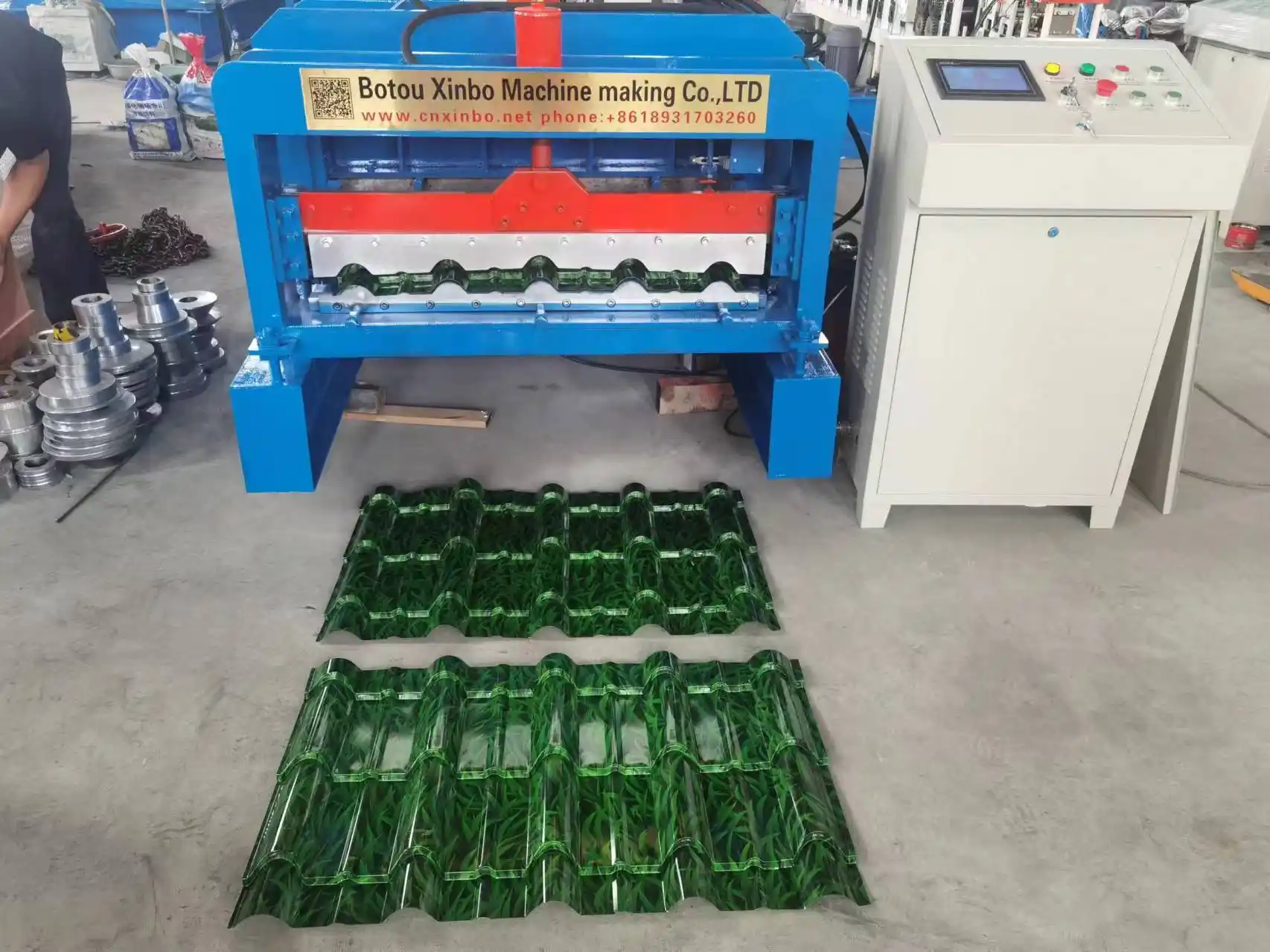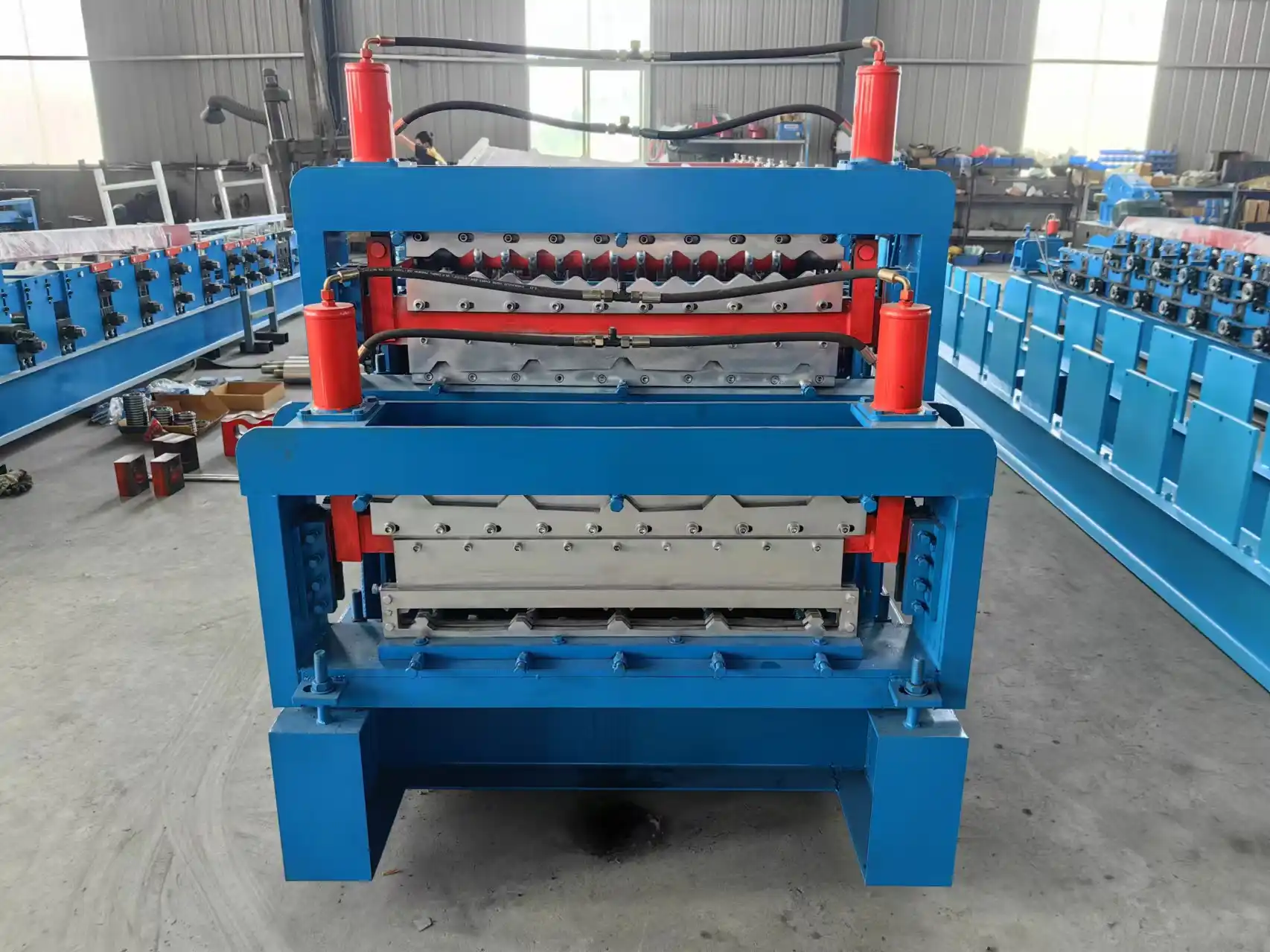The Role of an Automatic Decoiler with Car in Metal Sheet Forming Process
Understanding Metal Sheet Forming Machines
Overview of Metal Sheet Forming Machines
Metal sheet forming machines play a role in a variety of industries where shaping and molding sheet metal is necessary to create shapes and designs, for components and products with accuracy and efficiency in mind. The technology powering these machines has seen advancements over time leading to production turnaround times and improved precision in the manufacturing process. Thanks, to engineering methods employed in their design and development these machines are well equipped to meet the standards required by todays competitive market.
Types of Metal Sheet Forming Methods
Different techniques are used in shaping metal sheets to achieve goals depending of the characteristics of the material and the intended result.
Roll Forming
Roll forming involves bending a metal strip through successive pairs of rolls to attain the desired shape gradually and efficiently This approach is known for its effectiveness, in generating consistent profiles with minimal material wastage It is especially useful for crafting components such, as frames brackets and channels commonly utilized in construction and manufacturing industries
Press Brake Forming
Press brake forming is a process where metal sheetsre bent or folded using a press machine and die system to create intricate shapes and angles making it ideal, for producing items, with different wall thicknesses. Industries specializing in fabrication often employ press brake forming to craft components that need to be sturdy and long lasting.
Stretch Forming
Stretch forming involves stretching a metal sheet over a form or die to achieve the desired shape it needs to take on.This approach is particularly beneficial, for shaping forms. Finds its primary application in the aviation and automobile industries.Stretch forming plays a role in manufacturing durable parts due, to its capability of shaping complex geometries.
Importance of Decoilers in Metal Sheet Forming
Functionality of Automatic Decoilers with Cars
Automatic decoilers, with vehicles play a role in the metal sheet shaping procedure as they mainly focus on unwinding metal sheets for processing purposes. These devices aid in maintaining a seamless material flow through the feeding of metal sheets into the shaping machinery. This approach decreases the need for intervention. Boosts operational effectiveness. Moreover, an automatic uncoiler with a vehicle guarantees tension distribution, over the metal sheet to avoid distortion while unwinding.
Benefits of Using Decoilers in the Production Line
Integrating decoilers, into the production line comes with benefits such as minimizing operational disruptions and enhancing worker safety measures.The automated nature of decoilers plays a role in lowering the chances of errors while facilitating a smooth operational flow. Moreover, the machines are engineered to manage sheet dimensions and weights enabling flexibility in manufacturing. This leads to a production process that not cuts costs but also ensures superior final products quality.
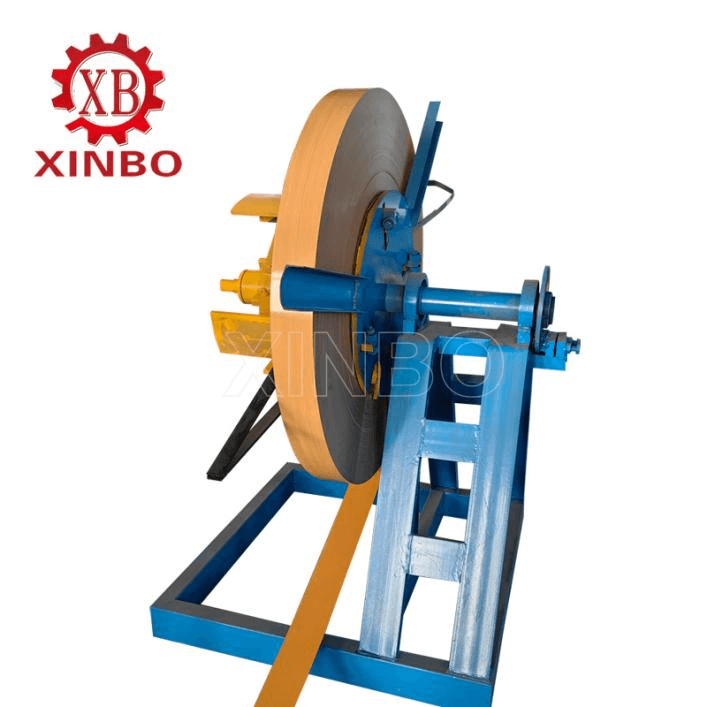
Applications of Sheet Metal Forming in Various Industries
Automotive Industry Applications
In the sector sheet metal shaping is crucial, for crafting a range of parts like body panels, frames and structural elements. Techniques, such as stamping and roll shaping are commonly employed to guarantee the robustness and sturdiness of car components. Additionally, the implementation of automated decoilers helps boost efficiency in production by simplifying the handling of materials.
Aerospace Industry Applications
In the aerospace sector, sheet metal forming plays a critical role in producing lightweight and high-strength structures required for aircraft and spacecraft. Techniques such as stretch forming enable manufacturers to create complex geometries essential for aerodynamic efficiency. Additionally, the precision afforded by metal sheet forming processes ensures that components meet stringent industry standards for safety and performance.
Construction Industry Applications
The construction industry utilizes sheet metal forming for a wide range of applications, including roofing, siding, and structural components. Roll forming and press brake forming are commonplace in creating profiles used in building frameworks and architectural features. The integration of automatic decoilers with cars into the production line allows for efficient handling and processing of diverse metal sheets, contributing to the overall effectiveness of construction projects.
Key Features of XINBO‘s Automatic Decoiler with Car
Advanced Automation Capabilities
XINBO offers an automatic decoiler with car that includes advanced automation capabilities designed to enhance productivity.
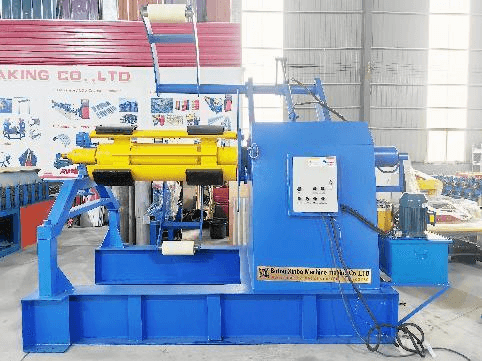
Precision Control Systems
Incorporating control systems enables the unwinding and feeding of metal sheets, into the manufacturing process efficiently while minimizing material waste and ensuring consistent tension, for maintaining quality components formation standards in industries where even slight deviations can lead to notable production inefficiencies.
High Load Capacity
XINBOs automatic decoiler equipped to handle loads offers a load capacity ideal, for diverse industrial uses. This capability enables the decoiler to support coils while maintaining performance. This allows manufacturers to consolidate their operations and minimize the requirement, for machinery by relying on a versatile machine.
User-Friendly Interface and Maintenance
Simplified Operation
XINBOs automatic decoiler features a user interface that enables operators to adjust settings and oversee the unwinding process, with minimal instruction needed. This straightforward approach enhances productivity in manufacturing settings since operators can swiftly adjust to shifts in production demands. The emphasis on ease of use is crucial for upholding efficiency, in paced settings.
Easy Maintenance Protocols
Ensuring upkeep is essential to keep machinery running smoothly and efficiently over time.The automatic decoiler, from XINBO incorporates user maintenance features to simplify inspections and upkeep tasks. This thoughtful design not reduces downtime but also extends the machines overall lifespan. This means manufacturers can rely on it for performance, in shaping metal sheets.
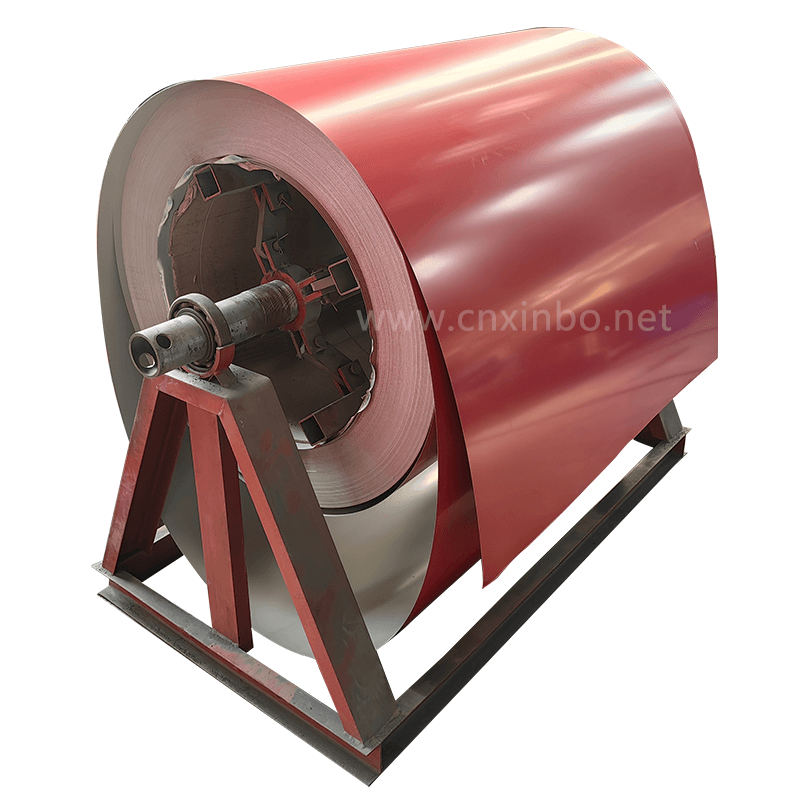
Enhancing Efficiency in the Metal Sheet Forming Process
Reducing Downtime with Automatic Decoilers
Automatic reelers, with a vehicle are essential for reducing downtime in the metal sheet forming process as they enable uncoiling of metal sheets and a smooth material flow into forming machines, without manual monitoring required to support manufacturers in decreasing setup time and changeovers and ultimately improving productivity overall Material handling downtime is greatly reduced resulting in a more efficient production flow
Consistent Material Feed and Smooth Operations
Using a decoiler, with a car guarantees a flow of metal sheets to the forming machines is essential to keep production rates on track and meet output targets as planned. Additionally maintaining tension while uncoiling is crucial to avoid any bending or distortion of the metal sheets and protect the quality of the end products. These decoilers help maintain an operation, in metal forming processes by improving efficiency and reducing defects to ensure high quality components are produced effectively.
Technical Specifications and Customization Options at XINBO
Standard Specifications Offered by XINBO
XINBO offers a variety of specifications, for its decoiler with car to cater to different industry requirements.The decoilers are known for their construction that can manage sheet sizes and weights effectively result in increased versatility in manufacturing processes. Furthermore the machines are furnished with speed settings enabling users to tune operational parameters according to the distinct demands of metal sheet forming procedures. This flexibility in adapting to production settings is crucial, for manufacturers aiming for efficiency and accuracy in their operations.
Customization Options Available for Different Needs
Each industry has its set of needs and XINBO recognizes this by providing a range of customization choices, for their automatic decoiler with car option. Manufacturers can pick configurations that suit their throughput requirements enabling adjustments in size and motor capacity. Moreover, features like control systems and specialized feeding mechanisms can be personalized to improve compatibility, with production setups. This high level of customization gives companies the flexibility to invest in machinery that perfectly matches their objectives promoting efficiency and expansion.
Considerations When Choosing an Automatic Decoiler with Car from XINBO
Evaluating Production Needs
Before choosing a decoiler, with a car system in place it’s important to assess your production requirements first. Considerations like the quantity of metal sheet processing the thickness and the type of material being utilized should play a role, in your decision making process. Understanding how production capacity affects the workflow as a whole can assist in identifying the specifications and features needed. This customized method guarantees that the selected decoiler adequately meets the needs of the manufacturing setup.
Assessing Long-term Return on Investment
Investing in an automatic decoiler with car from XINBO requires careful consideration of the long-term return on investment (ROI). Manufacturers should factor in the efficiency gains, reduced labor costs, and improved product quality that result from incorporating such equipment into their processes. A comprehensive ROI analysis can provide insights into how quickly the investment will pay off and the potential for enhanced profitability over time. Making informed choices regarding the purchase of decoilers can lead to significant financial benefits in the long run.
Integrating XINBO‘s Automatic Decoiler with Car into Existing Production Lines
Steps for Seamless Integration
Integrating XINBO’s automatic decoiler with car into existing production lines involves a structured approach to ensure that the transition is smooth and effective. Initially, a thorough assessment of the current setup is essential to identify any necessary modifications to accommodate the new machinery. Following this, precise installation procedures should be conducted to guarantee that the decoiler operates harmoniously with other production equipment. Additionally, establishing a clear communication channel between relevant departments can facilitate a collaborative integration process, minimizing disruptions during the transition.
Training and Support Provided by XINBO
At XINBO Companys core is a dedication, to empowering customers with the expertise and abilities needed to manage their automated decoiler with vehicle attachment system.This involves providing training opportunities, for operators and maintenance staff that emphasize machine operation techniques,troubleshooting methods and regular upkeep practices. Additionally, XINBO offers assistance to help businesses maximize the functionality of their equipment and tackle any technical issues that might crop up. Investment, in training and assistance builds trust in operating the decoiler machine and enhances efficiency and productivity in metal sheet forming tasks over time.
Related Posts

Good quality
XinBo machine making CO. LTD is a professional manufacturer and exporter in roll forming machine,
VIEW MORE→

 Spanish
Spanish Russia
Russia
